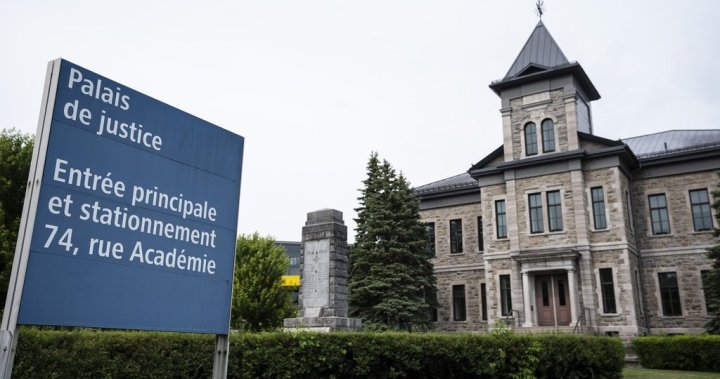The echoing hallways of Montreal’s courthouse fell silent yesterday as a 35-year-old woman appeared for her bail hearing following charges of abandoning her seven-year-old daughter in their apartment for nearly a week. Quebec Court Judge Dennis Galiatsatos scheduled the hearing for next Monday, granting prosecutors time to prepare their case against the mother, whose identity remains protected under a publication ban to shield her daughter.
Court documents I’ve reviewed indicate the mother faces three charges: abandonment of a child, failure to provide necessities of life, and criminal negligence. According to testimony from Crown prosecutor Yasmine Cadotte, the situation unfolded when police discovered the young girl alone in a Ville-Marie district apartment after neighbors reported not seeing the mother for several days.
“The child had been left with minimal food and was attempting to care for herself,” Cadotte told the court during preliminary proceedings. The girl reportedly survived on cereal and crackers while alone in the apartment from February 12 to 18, when authorities intervened.
My investigation into the case reveals a troubling timeline. Police records show neighbors contacted authorities after hearing crying from the apartment and noticing mail accumulating outside the door. When officers entered the home, they found the child in distress but physically unharmed. She was immediately placed under the care of Quebec’s youth protection services.
Marie-Ève Cloutier, a child welfare expert at McGill University’s Center for Research on Children and Families, explained in our interview that such cases highlight critical gaps in community support systems. “Children can fall through cracks when family support networks are absent or when parents face multiple stressors without adequate resources,” Cloutier said. “The psychological impact of abandonment can be profound and long-lasting.”
The Montreal Children’s Hospital reported 127 cases of serious child neglect requiring intervention last year, according to their annual safety report. Dr. Alain Ptito, a pediatric psychologist I consulted for context, noted that cases of complete abandonment remain relatively rare but represent “the extreme end of a spectrum of neglect that often begins with smaller breakdowns in care.”
Defense attorney Michel Labelle has requested a thorough psychological evaluation before proceeding with the bail hearing. During our brief exchange outside the courtroom, Labelle emphasized that “there are significant mental health considerations that must be taken into account to understand the full context of this situation.”
The mother, who appeared visibly distressed during the proceedings, will remain in custody until Monday’s hearing. She occasionally wiped tears while the charges were read, making only brief eye contact with her counsel.
Quebec’s Director of Criminal and Penal Prosecutions has indicated they will oppose bail, citing concerns about the mother’s stability and the child’s safety. Court filings I obtained show prosecutors will argue that the “deliberate nature and duration of the abandonment” constitute grounds for continued detention.
Youth protection officials declined to comment specifically on the case but confirmed the child is receiving psychological support and temporary placement in foster care. Catherine Rudel-Tessier, spokesperson for the agency, told me that their priority remains “ensuring the child’s immediate security while working toward the most appropriate long-term arrangement.”
The case has sparked renewed discussions about Quebec’s child protection system. Pierre Bourdeau, director of the Montreal-based child advocacy group Enfants Avant Tout, pointed to systemic issues that may have contributed to this situation. “We often see warning signs go unaddressed due to overburdened social services,” Bourdeau explained during our phone interview. “Prevention requires consistent community supports for vulnerable families before crises occur.”
If convicted, the mother could face up to five years in prison for the most serious charges. However, legal experts note that courts increasingly consider rehabilitation-focused sentences in cases involving primary caregivers.
For now, the girl remains under protection as the legal process unfolds. Court documents indicate a separate hearing regarding her long-term custody will take place in family court next month, independent of the criminal proceedings against her mother.






